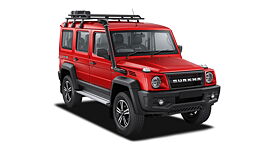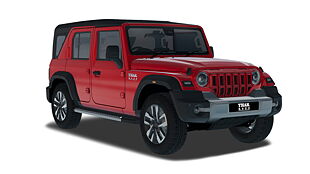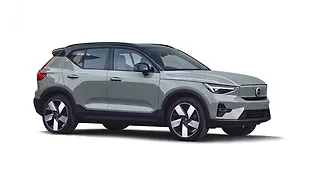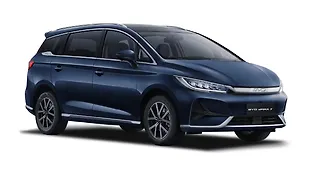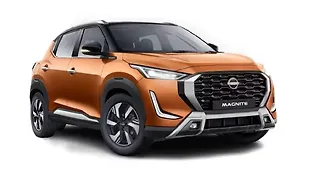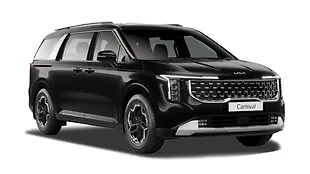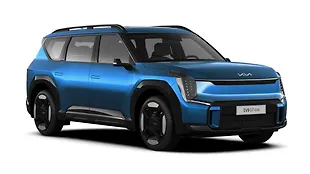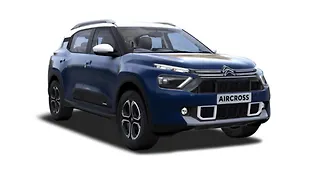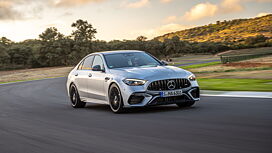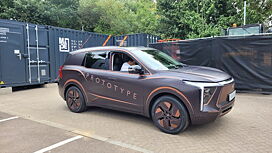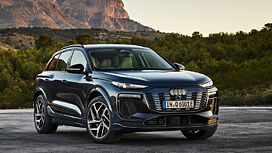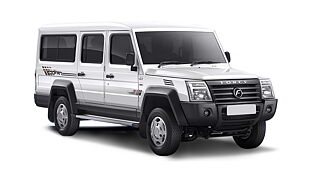Why would I buy it?
- Off-roading potential
- Five-door usability
- Utilitarian feel
Why would I avoid it?
- Mediocre interior quality
- Limited after-sales support
What is it?
7 / 10
The Force Gurkha is known to be a lifestyle vehicle, particularly for its off-roading capability. Be it any harsh landscapes or terrain, the hard-core SUV leaves any off-road enthusiast grinning from ear to ear. Now, the 2024 Gurkha gets several updates, including a refreshed interior, uprated engine power, and new features. Notably, it's now available in a five-door body style in addition to the three-door version. The former is longer and taller but has the same front and rear track with unchanged width and overhangs even.

Still, the SUV continues to sport great road presence with its badass looks. However, in contrast to the good-looking front DRLs and headlamps, the taillamps look utilitarian and boring. Nevertheless, the new red colour pops out and grabs attention. And that's only to further add to its attractive, menacing, and purposeful design, which in 2024 still offers the classic old-world charm. Equipment including the roof carrier, ladder, and the windscreen bar are offered as accessories but are homologated and road-legal.
So, will this five-door version add a new layer of usability to the Gurkha? Let’s find out.

How is it on the inside?
7 / 10

As compared to the three-door, the five-door body style brings in a lot more space with easy access to the second row. Interestingly, it's offered with a seven-seat layout featuring a bench seat in the second row and two individual seats in the third row. Yes, the entry is from the rear hatch as none of the front seats are foldable. The second-row seats can accommodate three adults, but sadly cannot be reclined, have an upright position, and lack under-thigh support that limits comfort. However, it continues to offer a commanding driving position with good all-round visibility. There's good headroom, knee room, and adequate shoulder room in the second row too. Even in the third row, the front-facing seats are usable with a large glass area elevating the sense of space and great visibility outside. That’s something preferable on a safari.

However, with all occupants aboard the five-door seven-seater Gurkha, all the luggage will have to be loaded onto the roof carrier. Also, there aren’t enough cubby holes and the slim door pads can't even hold a water bottle. Overall, there is no major improvement in the quality of plastics around, which still look and feel very primitive. Even the steering wheel doesn't get steering-mounted controls. Nevertheless, now a dead pedal is introduced from the feedback received earlier. Moving to the centre console area, the traditional 4x4 selector has been replaced with a knob, which looks cleaner and frees up space for some open storage areas.

On the other hand, the biggest change is that the SUV gets a new digital instrument cluster and a nine-inch Android Auto- and Apple CarPlay-compatible (wired) touchscreen infotainment system. The connection isn’t seamless and requires a third-party app to be installed. Then, the screen isn't integrated into the dash to sit flush and feels like an after-market accessory. It's devoid of any car/off-road information, but the UI is clean and doesn't lag. The digital instrument cluster is an upgrade from the analogue unit but is lacklustre and feels basic. Also, it’s a colour screen with just one layout. It doesn’t display any off-road info apart from the 4H-4L indication, but TPMS is integrated, unlike the earlier separate screen on the dash. The new features include electronically adjustable ORVMs and a start-stop function for improved fuel efficiency. As a part of its safety kit, it gets two airbags, ABS, EBD, ISOFIX anchorage, and an all-metal body that is frontal crash-compliant.

How is it to drive?
7 / 10

The 2024 Gurkha gets an updated 2.6-litre four-cylinder diesel engine paired with a four-wheel drive system. It now churns out 138bhp and 320Nm of torque as against its older power output of 91bhp and 250Nm. The new start-stop function can be enabled through a button on the dashboard. Twist the key to start the motor, and the engine does have a diesel clatter and vibrations on the gear lever. Nonetheless, the improvement in NVH can be seen as soon as the doors are closed. Even the road and suspension noise is minimal on the move in this five-door version.

However, with tall gearing, rubbery gear shifts, long throws, and a dog-leg reverse, the driving bit isn’t easy like in new-age cars. The clutch isn’t light, but now there’s a shift-on-the-fly electronic shift to switch between two-wheel drive (2H), 4-high (4H), and 4-low (4L). There are Eco and Power drive mode options and with the improved power, it provides sufficient grunt for it to move. There’s loads of torque available from 1,400-2,400rpm to even amble at low speeds in a higher gear. In the Eco mode, the dull throttle response is quite evident, however, it gets sharp in the Power mode. Then, the bump in power output nicely makes up for a heavier 3.2-ton five-door SUV. This is the gross weight of a vehicle with a full fuel tank, all occupants, and their luggage. That said, it runs out of breath post 3,000rpm and gets noisy, so there’s no point in revving it more.

Considering its ride and handling, the rear multilink and new front-independent double-wishbone suspension with coil springs in front and rear had been tuned to our driving conditions. But one can’t get away with the load and boat-like handling, slow steering which is dead at the centre, and three-and-a-half turns lock-to-lock that make it a task to manoeuvre. It’s fine when driven sedately, but a slight push in the corners and it starts throwing around its weight with tyre noise. It’s good below three-digit speeds but post that, the ride feels very busy and unpredictable. Even the brakes are spongy with the bite point coming in later.

But then when it comes to off-roading capability, it’s only become better with a 233mm ground clearance, 18-inch wheels, 35-degree gradability, and 700mm water-wading capability with the factory-fitted air intake snorkel. We got an idea of it with a short stint on a specially curated track but didn’t use its full potential with fully locking mechanical differentials on both axles. Also, worth mentioning is that the turning radius of 5.65m is reduced to 5.5m for the three-door, but is 6.3m for the five-door, making it cumbersome to U-turn and park in tight spots. But once you get a hang of it, it isn’t an issue and the reverse camera helps too.

Should you buy one?
7 / 10
While updating the Gurkha, Force Motors considered four important parameters, namely performance, comfort, convenience, and style. They’ve managed to make improvements that can rope in a buyer, but it will be difficult to convince someone who isn’t into off-roading. It still looks raw and unfinished compared to cars in 2024 and falls short of delivering the modern approach of a lifestyle vehicle. The utilitarian interior will be the biggest deal-breaker for some, and even the lack of an automatic gearbox. Its arch-rival, the Mahindra Thar, offers these even with an optional convertible top. It’s friendlier amongst city dwellers and off-road enthusiasts alike. The new Gurkha is only for those who need a manual box and a proper off-roader, keeping itself a niche seller rather than a mainstream product.

Pictures by Kaustubh Gandhi









